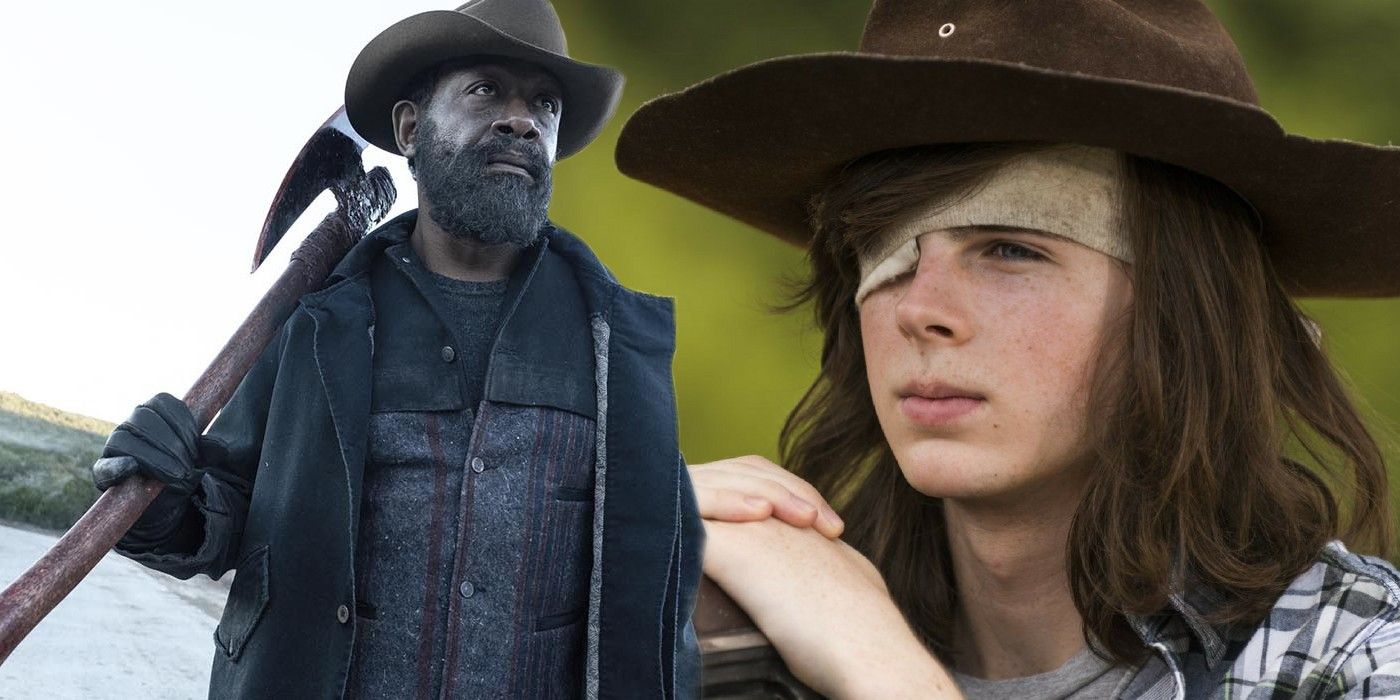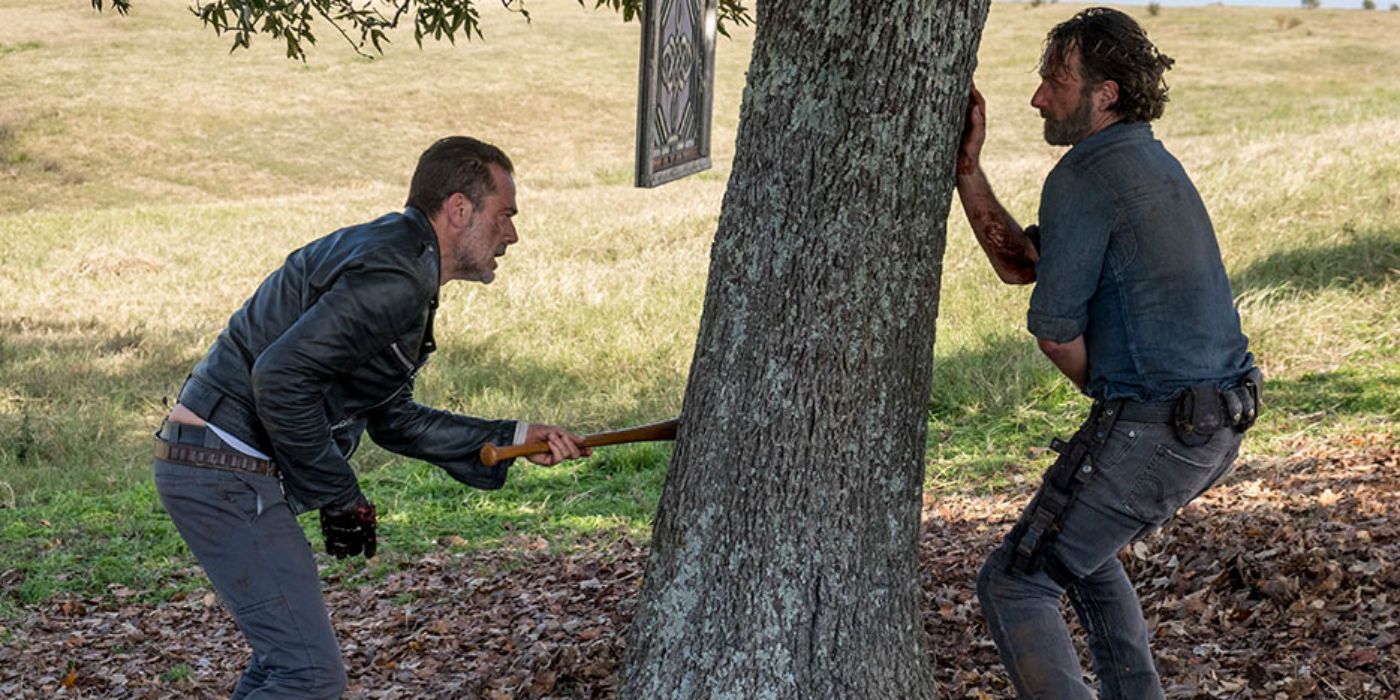Carl's death in The Walking Dead attracted plenty of fan backlash, but Fear The Walking Dead just highlighted how pointless the exit really was. Adapting the long-awaited All Out War comic arc, The Walking Dead season 8 promised to be the show's best run yet, but made a fatal fumble halfway through, killing off a major character in Chandler Riggs' Carl Grimes via a routine zombie bite. Riggs confirmed in the aftermath that he had no intentions of quitting the show, and was disappointed to be leaving. Nevertheless, The Walking Dead used Carl's death to progress the story of his father, Rick. Carl had always championed peace and cooperation - even with the Saviors - and as Negan found himself on the verge of defeat, Rick chose to honor that wish, sparing the villain's life and risking the wrath of his people.
Fans were less than impressed with Carl's limp exit, especially since the character survives until the very end of the Walking Dead comic books. Indeed, comic Rick spares Negan without the death of his son as motivation. In "Things Left To Do," Fear The Walking Dead season 6 hammers that point home further.
In a storyline that intentionally riffs on the Saviors, Colby Minifie's Ginny is the ruthless dictator of Lawton and the surrounding settlements, forcing Fear The Walking Dead's heroes into submission in a way that Negan (the old version, at least) would be proud of. With Strand's help, Morgan outwits Ginny, and suddenly everyone wants their pound of flesh from the recently deposed leader. With Ginny defeated and an onlooking crowd of disgruntled ex-followers watching on, Morgan faces the same dilemma that Rick once did; execution, or taking the moral high road. Just like Rick before him, Morgan Jones chooses the latter, sparing Ginny's life and talking down the baying crowd because he strives to be better than his enemies.
The showdown between Morgan and Ginny closely mirrors Rick's with Negan, but with one major difference - the two heroes' reasons for showing mercy. While Rick chose to honor the memory of his dead son, Morgan simply took a hard look at the beliefs and experiences that led him to becoming Ginny's would-be executioner, and wrestled (very loudly) over whether his fledgling community should be built on a foundation of blood. If the Walking Dead comics hadn't already made it clear, Morgan's choice proves that Carl didn't need to die in order to advance the story between Rick and Negan. The leader of the Alexandrian alliance was perfectly capable of sparing Negan using his own (admittedly erratic) moral compass.
The climax of Ginny's story in Fear The Walking Dead also highlights how much better the conclusion to All Our War could've been without Carl's death. Not only did The Walking Dead lose one of its most important and compelling characters, but Rick's mercy toward Negan felt somewhat hollow - as if the decision wasn't the result of his own character development, but merely the begrudging carrying out of his late son's dying wish. Although The Walking Dead's viewership had started to decline beforehand, Carl's death signaled a point of no return from which the show has never truly recovered, and the bigger than franchise gets, the more the pointlessness of axing Carl Grimes becomes apparent.


